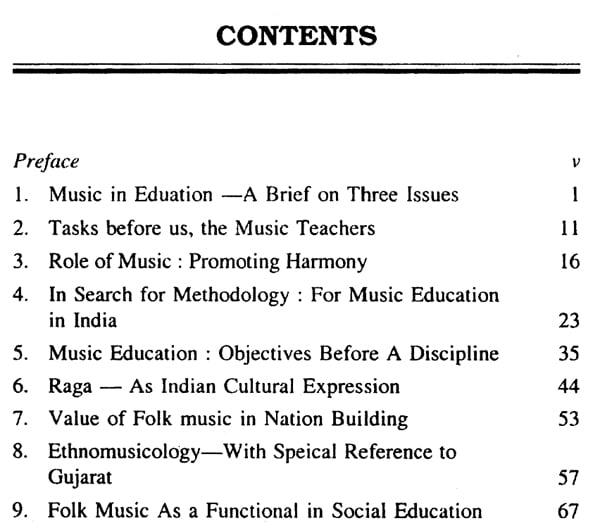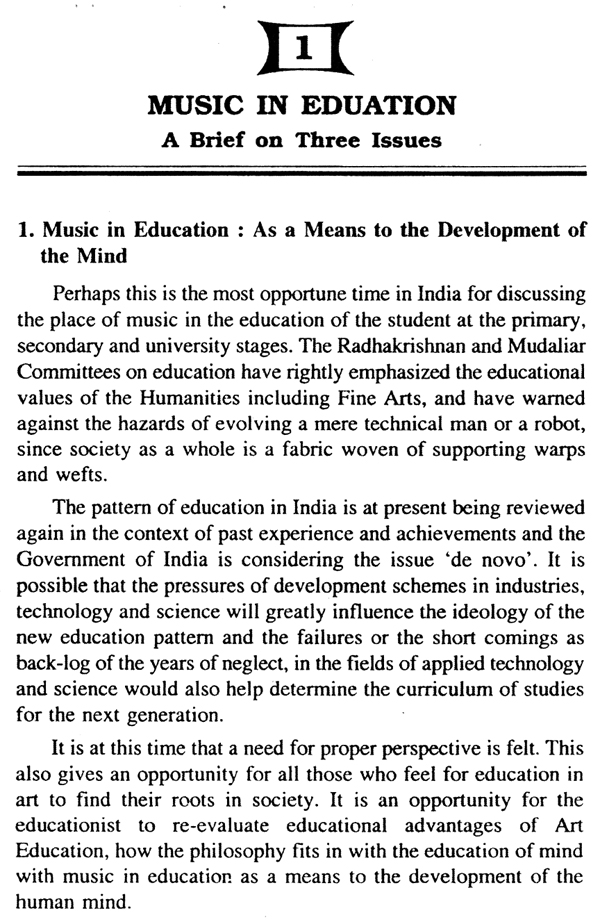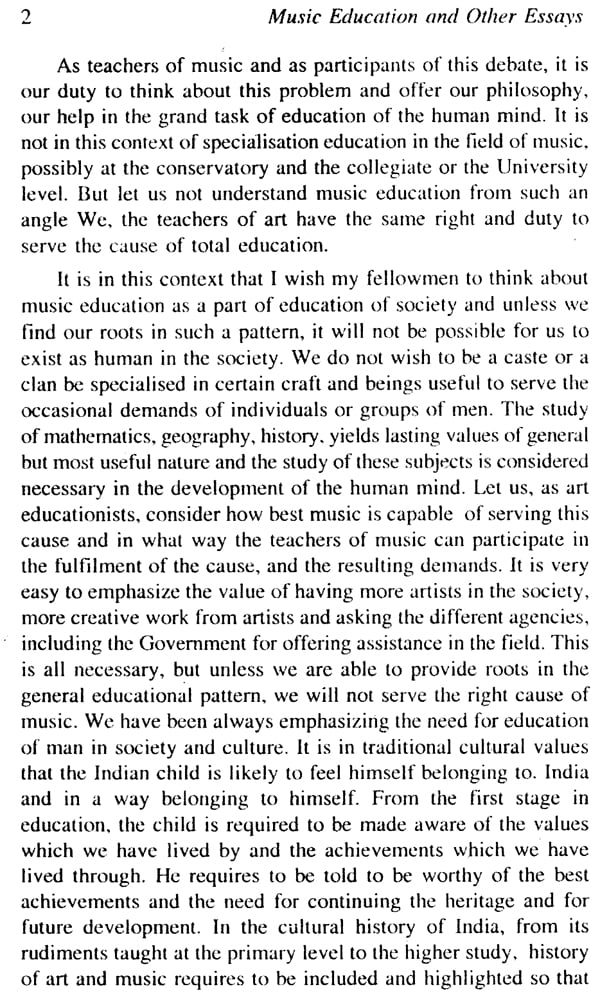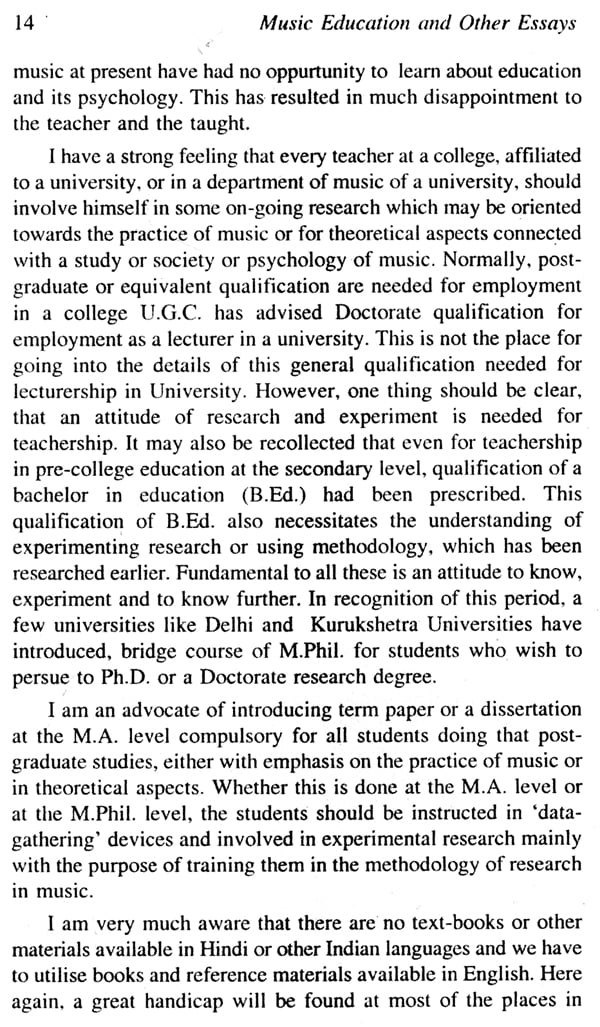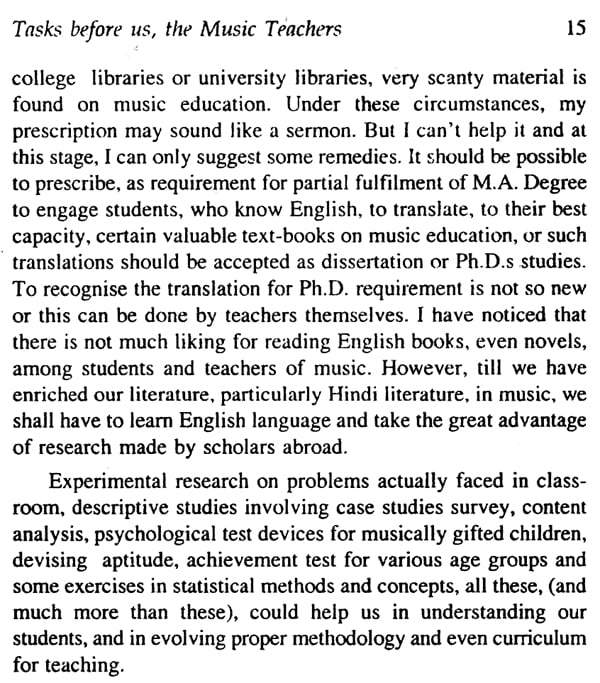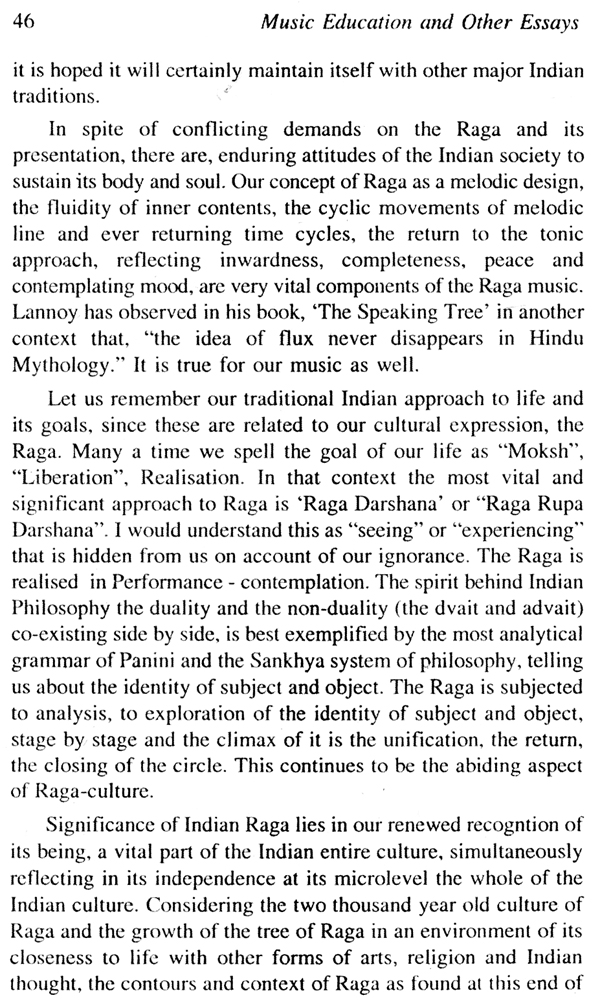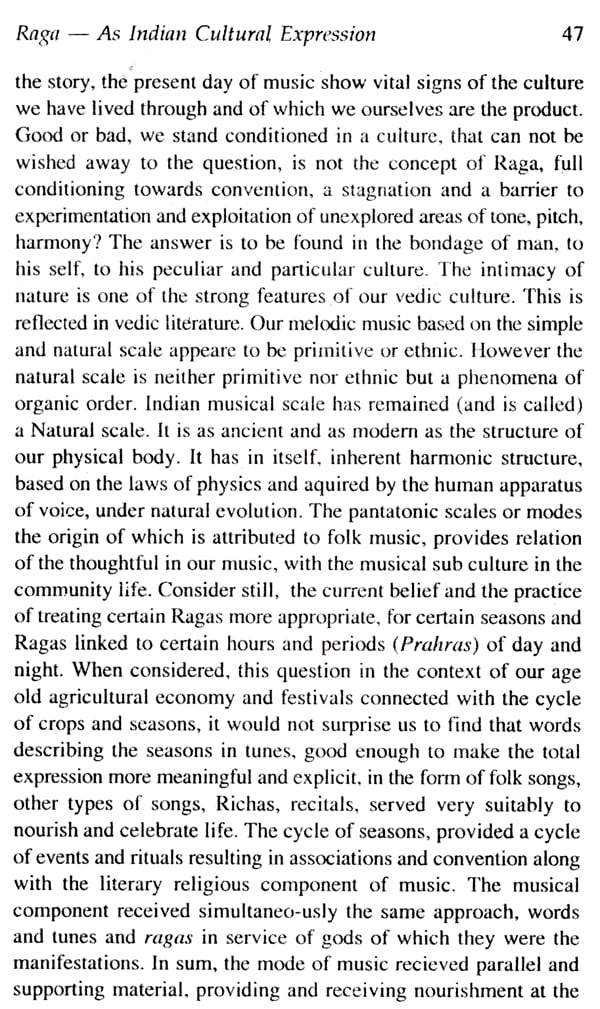
Music Education and Other Essays
Book Specification
| Item Code: | NAU563 |
| Author: | Prof. R.C. Mehta |
| Publisher: | Sanjay Prakashan |
| Language: | English |
| Edition: | 2016 |
| ISBN: | 9788174532978 |
| Pages: | 74 |
| Cover: | HARDCOVER |
| Other Details | 9.00 X 6.00 inch |
| Weight | 280 gm |
Book Description
In Music Education and Other Essays, Professor Mehta, provides significant insights into music as a vital part of education for leading a cultured life. It is deliberate in being brief and simple, readable even by the uninitiated. The opening chapter deals with the develop-ment of the mind, employing music in our educational system. Chapter 2, focuses on the objectives before music education, while Chapter 3 speak about methodology for music education. The topic of tasks before music teachers is discussed, in Chapter 4. How Raga has achieved the distinction of being unique in Indian Cultural Expression, is contemplated in chapter 5. In Chapters 6 to 9 the author points out to the moth of music, folk music,— its cultural value in nation building, its significance in promoting harmony between linguistic and communal groups, and . also its employment as a functional in social education. A stimulating book.
Recipient of several a wards, Prof. R.C. Mehta (b. Oct. 31, 1918) is an academician of high reputation. He is a follower of the Kirana gharana style of Hindustani Classical Vocal Music, – a sunni shageerd of the Late Chisti-Sabiri Ustad Bahere Waheed Khan. He was with All India Radio for 9 years (1945-1953) prior to his taking up the reins of principalship of the Baroda Music College, M.S. University of Baroda. As an academician he has served the cause of music education in the country for over fifty years. He is the founder secretary of the Indian Musicological Society (Bombay—"Baroda) and founder—Editor of the prestigious periodical, The Journal of the Indian Musicological Society, since its inception in 1970. He has written and published extensively on various aspects of music. He has edited and published 21 scholarly books publication, in English on music, and Agra Gharana Parampara, Gayaki and Chizen is in Hindi. Prof. Mehta is the recipient of an honorary degree of Doctor of Music (D. Music) conferred on him by the Akhil Gandharva Mahavidyalaya Mandal (1967) and has received State Award for Music from the Govt. of Gujarat, He was given Emeritus Fellowship by the Govt. of India, received Sarangadeva Fellowship conferred by Sangeet Peeth of Sur—Singar Samsad, received ITC- SRA Award for distinguished and Life-Long services to the cause of Hindustani Classical Music. In 2005, An Award for Life-Long Contribution to Musk was given by the Bangalore Gayana Samaja, presented by H.E. Shri S.M.Krishna, Governor of Maharahtra.
This book is an outcome of my involvement with music from learning, performing to teaching, from syllabus forming to the administration of a music institution. Also form researching in several forms of music, from folk to classical. I had the occasion of presenting my thoughts in seminars, lectures and papers. Here is a selection of a few of my writings. I have always advocated that music education should start in the early childhood. Unintentionally, it does start with listening to lullabies, listening to folk melodies around us in the growing years. In this book there are a few articles, covering, "Value of Folk Musk, In Nation Building", (Chapter 6), "Concept of Man: In Folk Songs of Gujarat" (Chapter 7), and "Folk Music —As Functional in Social Education" (Chapter 9), which emphasize the role of folk music in our life. It requires to be realised that —as mentioned in the chapter 9, —"Political ideologies and behaviour of the rural folk, more than the urban people, can be considerably influenced and conditioned by well chosen specially composed songs, based on folk tunes and by judicious use of community singing". Psychologists, specially music psychologists and researchers in music therapy, have been advocating the use of music in the development of the mind, which is much more effective than language learning and arithmetic. Highly reputed philosopher Plato preached for music and gymnastics as the two prime exercises for developing the mind. In my article, (Chapter 1). I have pointed out the concern shown by Dr. Radhakrishnan (Philosopher) and Dr. Mudaliar (Educationist), in the following words: "The Radhakrishnan and the Mundaliar Committees on education have rightly emphasized the education values of Humanities, including (vi) Fine Arts and have warned against the hazards of evolving a mere technical man or a robot, since society as a whole is a fabric woven of supporting warps and wefts." Who else but Music Educators will carry out the tasks of educating the masses, —masses in their growth in the various fields of activity? Chapter five details Objectives before the discipline of Music Education. Centuries of musical thought and creativity have culminated in the Indian Cultural expression called Raga, which is unique to India, in the global world of music. My thanks are very due to Dr. Lovely Sharma, (of Agra) for prompting me to publish through the publisher of her choice and proof-reading initially. I am indebted to Dr. Sakuntala Narsimhan (of Bangalore) and Smt. Utpala Mehta (Baroda) for re-proof-reading the entire with utmost care. And my most sincere thanks to the publishers, Sanjay Prakashan and its proprietor Shri Pravin Dhall, for publishing the book with so much care.
**Contents and Sample Pages**
